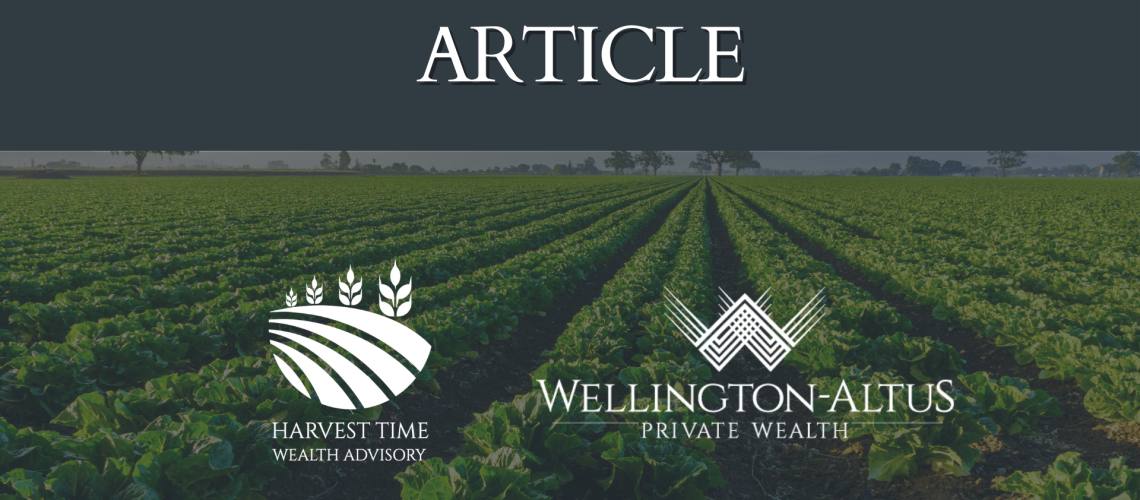Owning assets jointly has grown in popularity—with spouses, and now more frequently between parents and children. While there may be benefits, be aware of the potential pitfalls prior to transferring assets into joint ownership.
Joint ownership occurs when an asset is owned by more than one person. There are two forms: “Joint tenancy” (with the right to survivorship) refers to an arrangement in which the ownership of the asset passes directly to the surviving owner(s) upon the death of one of the owners.* As such, the asset passes outside of the deceased owner’s estate. Under the alternative “tenants in common” arrangement, owners each hold separate ownership interests in the asset that can generally be sold, transferred, or bequeathed without the consent of the other owners.
Here, we focus on joint tenancy, which is being increasingly used in the estate planning process. While there are benefits, be aware of the bad—and potentially “ugly”—implications prior to entering into this arrangement:
The Good…
Ease of asset transfer — Upon the death of one owner, the surviving owner(s) automatically becomes the owner of the asset, with few legal or administrative hassles upon transfer.
Bypass probate — Since assets pass to joint owners outside of the will, no probate or estate administration fees are assessed, in provinces where applicable.
The Bad…
Tax implications — There may be potential tax consequences to joint owners. For example, if real estate is owned jointly between a parent and a child who already owns a residence, there may be a proportionate loss of the principal residence exemption. Adding a joint owner to a property could also result in the incidence of land transfer tax. For jointly-owned investment accounts, even if tax slips may be received in the names of the joint owners, the Income Tax Act could require attribution of the income earned and owned by one taxpayer to another taxpayer for tax purposes, based on who provided the capital, and what proportion was used to acquire the assets in question. Depending on the circumstances, adding another party as joint owner could also result in the recognition of some gains or losses for tax purposes.
Loss of control — Joint ownership may mean that the original owner no longer has total control over the assets. With property, decisions regarding its maintenance or sale need to be made jointly. With financial accounts, such as a bank account, a joint owner would generally have the ability to withdraw or use funds.

The Ugly…
Estate equalization issues — If the majority of assets are held in joint ownership (outside of the estate), the estate may not have sufficient assets to fund legacies or gifts outlined in the will, or to cover potential tax liabilities. If an estate is to be divided equally but a jointly-owned asset hasn’t been considered, expensive and divisive legal action could result. It also may not be clear if a joint-tenancy arrangement was done for ease of administration or if a change in beneficial ownership was intended.
Exposure to creditors or matrimonial claims — Jointly held assets may be exposed to claims by a joint owner’s personal or business creditors, or ex-spouse. This could force the sale of an asset to cover the payment of debts or claims of the joint owner. As always, please seek the advice of legal and tax advisors as it
relates to your particular situation.
*Not applicable in Quebec, where the laws differ and an automatic right of survivorship does not exist.
According to a recent survey, only 30 percent of Canadians have an estate plan. Additionally, more than half of those surveyed aren’t familiar with many key estate planning features:1
- 50% aren’t aware of how the power of attorney works;
- 55% do not appreciate the important role life insurance can play in protecting the value of one’s estate;
- 53% do not understand the role a will plays;
- 63% are unfamiliar with how taxes impact assets after death.
How about you? If these statistics prompt a need to revisit your estate plan and you require support, please reach out.
1.https://www.wealthprofessional.ca/news/industry-news/canadians-lack-estateplanning-knowledge-study-finds/386014
The information contained herein has been provided for information purposes only. The information has been drawn from sources believed to be reliable. Graphs, charts and other numbers are used for illustrative purposes only and do not reflect future values or future performance of any investment. The information does not provide financial, legal, tax or investment advice. Particular investment, tax, or trading strategies should be evaluated relative to each individual’s objectives and risk tolerance. This does not constitute a recommendation or solicitation to buy or sell securities of any kind. Market conditions may change which may impact the information contained in this document. Wellington-Altus Financial Inc. (Wellington-Altus) is the parent company to Wellington-Altus Private Wealth Inc. (WAPW), Wellington-Altus Private Counsel Inc. (WAPC), Wellington-Altus Insurance Inc. (WAII), Wellington-Altus Group Solutions Inc. (WAGS), and Wellington-Altus USA Inc. Wellington-Altus (WA) does not guarantee the accuracy or completeness of the information contained herein, nor does WA assume any liability for any loss that may result from the reliance by any person upon any such information or opinions. Before acting on any of the above, please contact your financial advisor..
©2024, Wellington-Altus Private Wealth Inc., Wellington-Altus Private Counsel Inc., Wellington-Altus Insurance Inc., Wellington-Altus Group Solutions Inc., and Wellington-Altus USA Inc. ALL RIGHTS RESERVED. NO USE OR REPRODUCTION WITHOUT PERMISSION. www.wellington-altus.ca
If you no longer wish to receive commercial electronic messages from Wellington-Altus Private Wealth Inc., please send an email to unsubscribe@wellington-altus.ca



